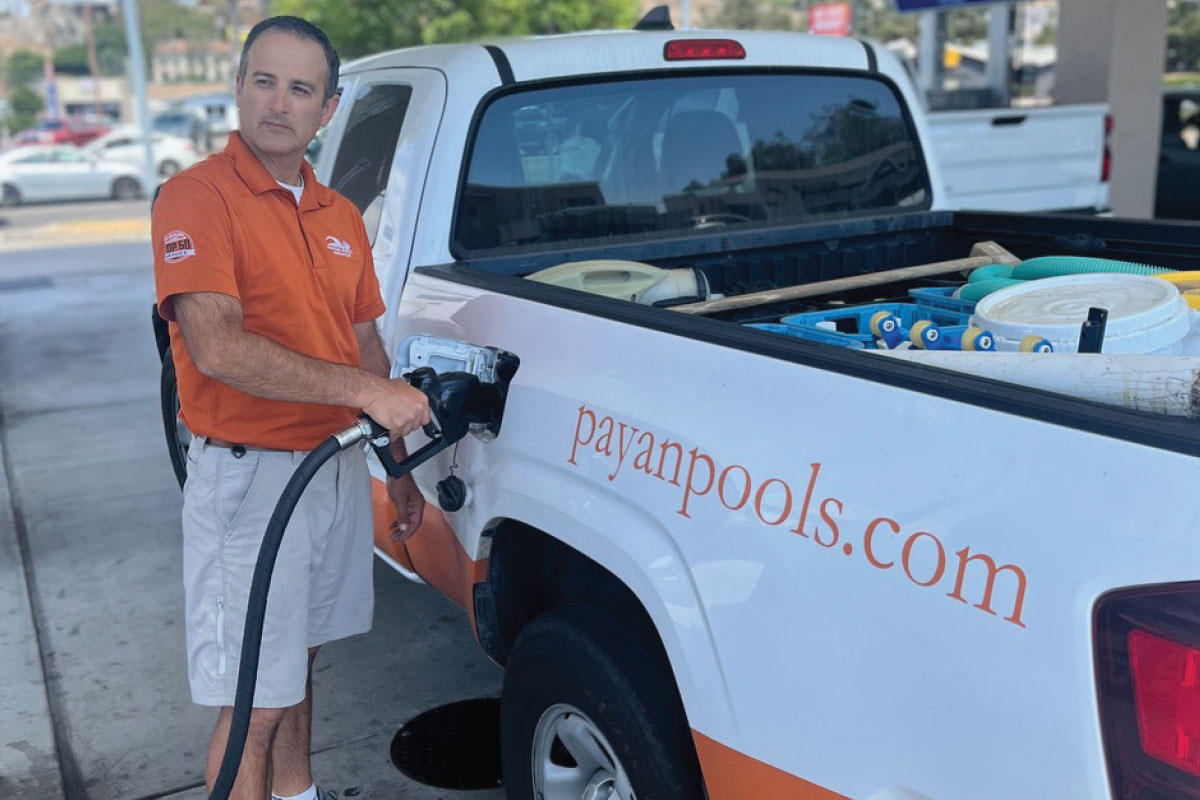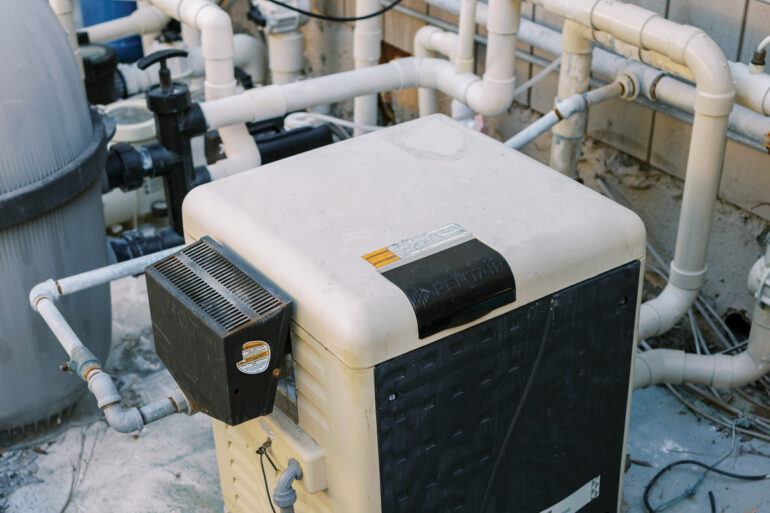Successful Fuel Management

With the surge in gas prices this summer, Poolwerx Keller owner Frank Disher says that fuel expenses for his business have increased from between $1,300 and $1,600 per month, to more than double those numbers over the last two years. To trim fuel costs, Disher, who operates out of North Richland Hills, Texas, says his company is taking measures to be more efficient. However, scrutinizing operating expenses can be stressful, tedious and potentially fruitless.
The situation is even more complex for those managing big fleets, which need oversight mechanisms to prevent unnecessary spending, and must also optimize daily routes. While fleet management software and other new technologies help with lowering costs and increasing profit margins, techniques such as regular truck maintenance, improved aerodynamics, pre-planning routes, limiting engine idling and monitoring driver behavior for aggressive driving, can also reduce fuel costs.
These days, some companies turn to cloud-based fuel management platforms, fleet fuel companies and fleet fuel cards to monitor fuel consumption and get better gas mileage.
Zac Nicklas, president of The Pool Boys in League City, Texas, says its past experience with “one of the long-standing big-name fleet fuel companies” was terrible.
“We found that over time, we were paying miscellaneous fees that were in fact costing us more than if we didn’t use the service,” Nicklas says.
In addition, Nicklas had issues with the company’s “archaic” web portal, pricing and customer service. But more recently, Nicklas has found Coast, a New York City-based fleet and fuel payments management company, and thus far is satisfied with its “up-to-date, user-friendly portal,” adding that Coast met the needs that the other company had not.
“Anytime I have had a question, the support team is quick to assist,” Nicklas says. “I can set rules on the cards that limit when fuel can be purchased (by day/time/etc.) as well as several other customizable permissions to prevent any unauthorized use.”
Although The Pool Boys hasn’t upgraded to fuel-efficient vehicles, the company has found unique ways to save money on fleet fuel by operating smaller pickups with smaller, more efficient engines. Additionally, drivers are instructed to shut off vehicle engines at every stop.
For Disher’s part, he says his company is looking into software and tracking solutions that will help his team improve efficiency with their routes. In the meantime, Poolwerx Keller uses a fleet card, although, according to Disher, “it really doesn’t save any significant amount of money at the pump.”
Javier Payan, president of Payan Pool Service in Santee, California, says the company’s fleet GPS helps it to monitor driving distances and driving behaviors. He mentions that Payan Pool Service relies on cash to pay for fuel instead of fleet fuel cards or fuel management programs.
It can be hard to say ‘no’ to a potential customer that may be a little farther away.”
Zac Nicklas, The Pool Boys
Elsewhere, route optimization is an excellent way to reduce costs and improve fleet productivity. Nicklas says, The Pool Boys team develops “tight pool service routes,” although he adds that “it can be hard to say ‘no’ to a potential customer that may be a little farther away.” Still, says Nicklas, they try to keep their routes from growing out of control, adding that all of its accounts are within a seven-mile radius of the shop. “As we continue to grow,” he says, “we can start expanding out little by little and still maintain a tight service route.”
Disher has also become more aware of client location when quoting work, thus, the company has become more selective with the jobs it pursues.
Payan, meanwhile, employs a similar strategy, adding that his company’s route manager is constantly “adjusting schedules to minimize drive time and distance.” Counter to trends in the industry, he says Payan Pool Service has not peeled off any clients from the company’s routes, but they did tighten up the service radius on all new business.
Overall, industry experts agree that fuel management is important for a pool service company. Moreover, many companies have general rules and clear strategies in place to respond thoughtfully to the energy crisis.
Nicklas says that although his company has no control over the price of fuel, it has control over tracking and managing fuel purchases. With that in mind, Nicklas says, The Pool Boys set clear rules to follow, such as monitoring fuel purchases, investing in more efficient vehicles and maintaining the aforementioned tight service routes.
Poolwerx Keller must also be mindful of its service routes, as the company services roughly 400 pools per week. Moreover, the company has an additional three repair trucks on the road that Disher says consume about one-third of the total fuel budget.
“We all add and lose service stops on a fairly regular basis,” Disher says. “Over time, routes can end up being less efficient. Perhaps reviewing the routes on a quarterly basis for efficiency can not only help save fuel, but also make your techs more efficient with their time.”
More recently Disher says that fuel expenses have begun to drop again. “We were spending about $3,600 a month, but now it is more like $2,000,” Disher says. “Still, it’s not like it was.”





